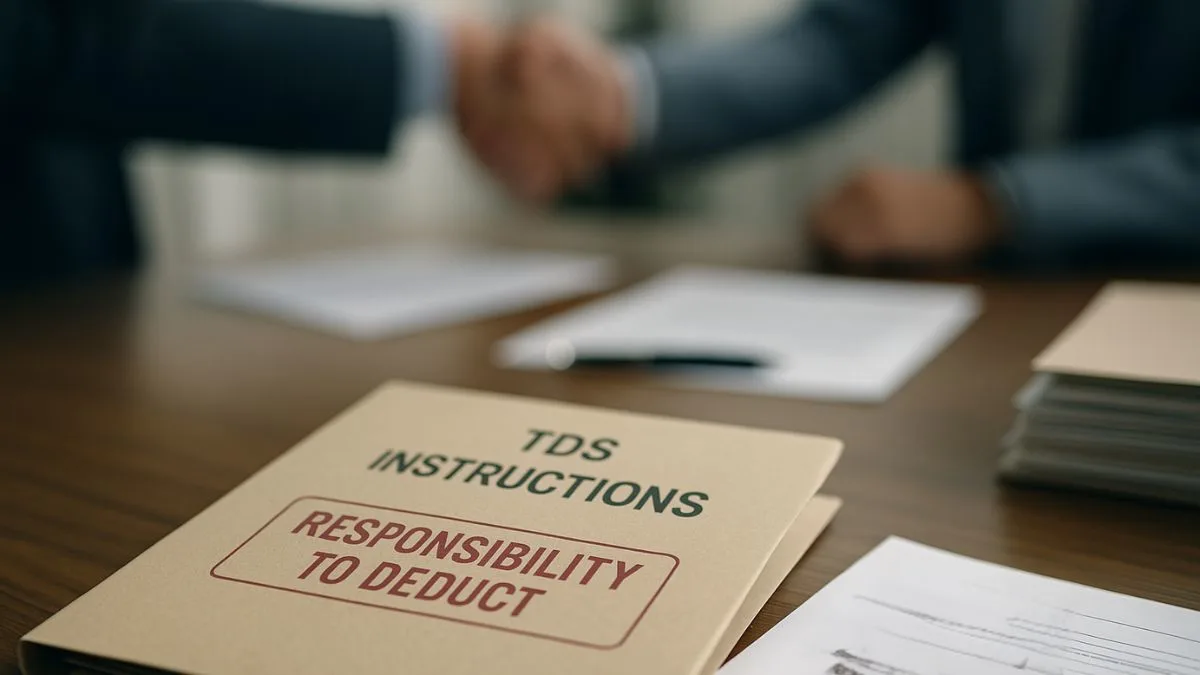
Understanding Interest on Income Tax Disallowed: The Basics
In India, income tax is a personal obligation of the taxpayer. Any interest paid on delayed payment of income tax is treated as a personal expense & is not allowable as a deduction while computing taxable income. This rule applies both to businesses & professionals under various heads of income.
The Income Tax Act, 1961 specifically disallows any sum paid by way of income tax, wealth tax, or similar taxes, including any interest paid on such taxes.
Disallowance Under Section 40(a)(ii) of Income Tax Act
The relevant section that deals with this is Section 40(a)(ii) of the Income Tax Act. This section expressly disallows income tax paid as an expense while computing business or professional income.
But what about the interest on late payment of income tax?
Here’s the key:
- Interest paid on late payment of income tax is treated in the same manner as the tax itself.
- Since the principal tax payment is not allowed as an expenditure, the interest component is also disallowed.
Thus, the correct reference when people ask for interest on income tax disallowed under which section is generally Section 40(a)(ii).
Interest on Income Tax vs. Interest on TDS, GST, or Other Statutory Payments
It’s crucial to differentiate between:
- Interest on late payment of income tax → Not allowed as a deduction (Disallowed under Section 40(a)(ii)).
- Interest on late payment of TDS or GST → May be allowed as it arises in the course of business activity.
This distinction often leads to confusion in Form 3CD under the Tax Audit section, where incorrect reporting can invite notices.
Reporting in Tax Audit (Form 3CD) & ITR Filing
Many taxpayers & even accountants are often puzzled about how to disclose this correctly in Form 3CD or while filing their Income Tax Return (ITR).
- In Form 3CD, you must report all inadmissible expenses under the appropriate clause.
- In the Income Statement for ITR, ensure that interest on income tax is added back to the profit since it's not deductible.
This is why the question of interest on income tax is disallowed under which section in ITR or 3CD keeps appearing in search queries. The correct understanding helps in accurate reporting.
Common Scenarios Where Interest on Tax is Disallowed:
- Interest on Self-Assessment Tax (Section 140A) – Disallowed
- Interest on Advance Tax shortfall (Section 234B/234C) – Disallowed
- Interest on demand raised under Section 156 – Disallowed
- Interest on late filing of TDS (Section 201(1A)) – Generally Allowed
- Interest on late GST payments – Allowed as per business expense rules"
The key lies in identifying whether the expense relates to business operations or personal tax liability.
Practical Example to Clarify:
Imagine a company earns a profit of ₹10,00,000 but has paid ₹30,000 as interest on delayed income tax. The company cannot claim this ₹30,000 as an expense to reduce taxable income. Thus, the taxable profit remains ₹10,00,000.
However, if the company paid interest on GST dues of ₹30,000, this could be allowed, reducing taxable income to ₹9,70,000.
Why Is Interest on Income Tax Disallowed?
The logic behind this rule is simple:
- Income tax is a personal statutory obligation.
- Allowing a deduction for income tax or its interest would mean using government revenue to pay taxes, which is contrary to tax policy principles.
Key Takeaways:
✅ Interest on income tax is disallowed under Section 40(a)(ii).
✅ Applies to late payment of self-assessment tax, advance tax, or regular assessment tax.
✅ Must be carefully reported in Form 3CD and ITR.
✅ Do not confuse this with interest on TDS, GST, or other statutory payments, which may be allowed.
✅ This rule ensures that personal tax liabilities do not reduce business taxable profits."
Final Words:
Understanding the nuances of interest on income tax disallowed under which section is vital for every business owner, salaried professional, & tax consultant. Incorrect reporting can lead to penalties, interest, or unnecessary tax demands. To ensure your ITR & tax audit are error-free, it's always better to consult professionals.
👉 Need expert help in filing your ITR or managing your taxes smartly? Let our team at Callmyca.com help you maximize your tax savings & stay 100% compliant—book your consultation today & file stress-free!











